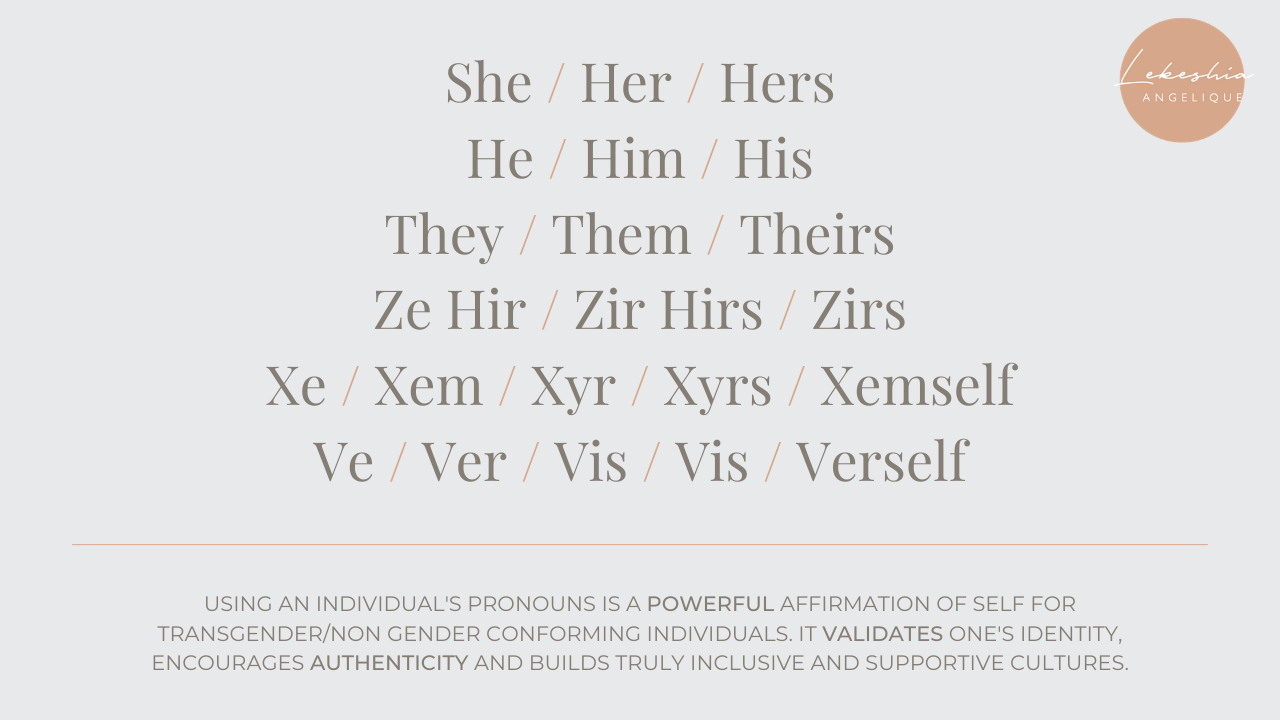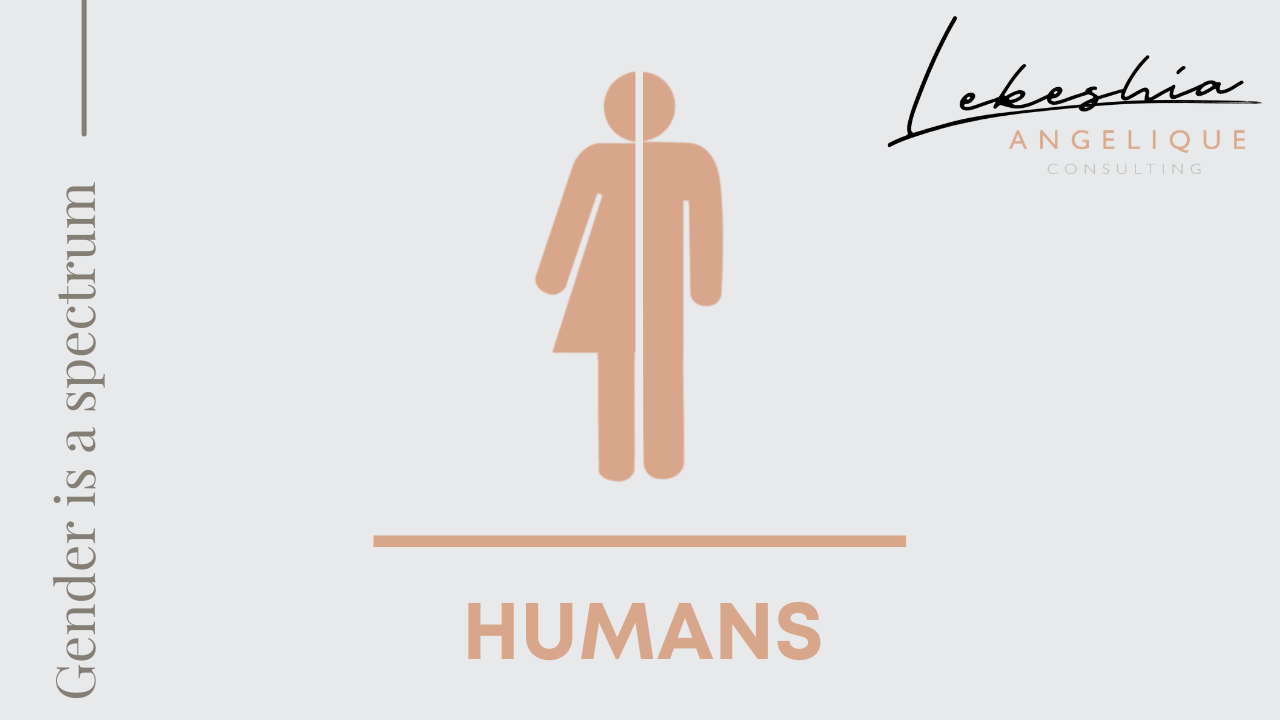The Power of the Pronoun: The Harmful Message You Didn’t Know You Were Sending

Photo credit: The Gender Spectrum Collection
From the moment we learn to speak, read, and write, we are trained to refer to people and animals by a pronoun (he/she/her/him). The majority of the time, when speaking of a singular human in the third person, these pronouns have a gender implied – such as “he” to refer to a man/boy or “she” to refer to a woman/girl. These associations can be detrimental to nonbinary individuals.
Standard practice today is to make assumptions about the gender of another person based on the person’s appearance or name. According to feminuity.org, the act of making an assumption (even if correct) sends a potentially harmful message—that people have to look a particular way to demonstrate the gender they align with.

Why are pronouns important?
Using someone’s pronouns shows your respect for their gender identity. PERIOD. If you are genuinely doing the work to create an inclusive space, you should be sharing your own pronoun, as well as inviting others to share theirs almost immediately upon meeting them. By sharing your pronoun first, you are signaling a safe space for all individuals.
Referring to someone by the wrong pronoun can have devastating effects. These words may be tiny and seemingly insignificant, but they can leave people feeling disrespected and invalidated. Using accurate, respectful identifiers is about showing people, “Hey, I’m here, I see you, you are valuable, and you are safe.”
Now that sounds like a great place to start, right?
How do I ask someone what their pronouns are?
Let’s not overcomplicate this one. Go ahead, get out of the weeds, stop overthinking and do it... JUST ASK!
It can be nerve-wracking or feel awkward to ask someone outright. If it were up to The Noun Lounge, everyone would proudly display their pronouns on a shirt. Hmm, I think they are on to something (head over and shop with them like, right now)!
Even better, share your pronoun first and signal an invitation for them to share theirs—the simple act of asking waves a big ol’ white flag validating the other person.
Be cautious in a group setting so that no one feels forced or objectified. Remember, referring to someone by name is equally important. Avoid the term “preferred pronouns”—use only the word “pronouns.” Adding “preferred” alludes to the idea that someone’s gender identity is a temporary choice.

What do I do if I call someone by the wrong pronoun?
Sometimes, we may use the wrong pronouns by mistake. We are human, and we are all learning. A respectful way to address your mistake is to self-correct aloud, so the person knows that you are aware of and respect their pronouns. No one is looking for a perfect person, just a respectful and inclusive one.
Take this one step further by ensuring you correct and call out colleagues who may not be using names and pronouns correctly. One of the most significant ways to show your allyship and support is by holding yourself and OTHERS accountable. Help as many people as you can to better understand.
What are some strategies I can implement in my business NOW?
Time and education are at the forefront of things businesses need to be focusing on when it comes to building an inclusive environment. The people at the top must set good examples and expectations. They must be more than surface-level strategies. Consider the following ways to affirm and support ALL employees and clients:
- Use gender-neutral language when addressing groups (e.g., colleagues, all of you, everyone).
- Ensure all internal documents and HR documents have an optional area to volunteer their pronoun.
- Include Mx. in addition to Mrs. Mr. etc.
- Encourage employees to display pronouns in their email signatures.
Ultimately, like anything else, getting pronouns right takes practice. Over time, you will gain confidence and see its impact on the people around you. Committing to understanding those around you and creating genuine inclusive practices in your everyday life can make such a powerful impact. Making the tiniest of changes in your address shows support, builds authenticity and trust, and can potentially validate a person's entire identity. Why wouldn't you want to be that person?!
Ready to dive deeper into allyship? Join me in the DE&I Lounge where I share updated information on all things diversity, equity and inclusion.

